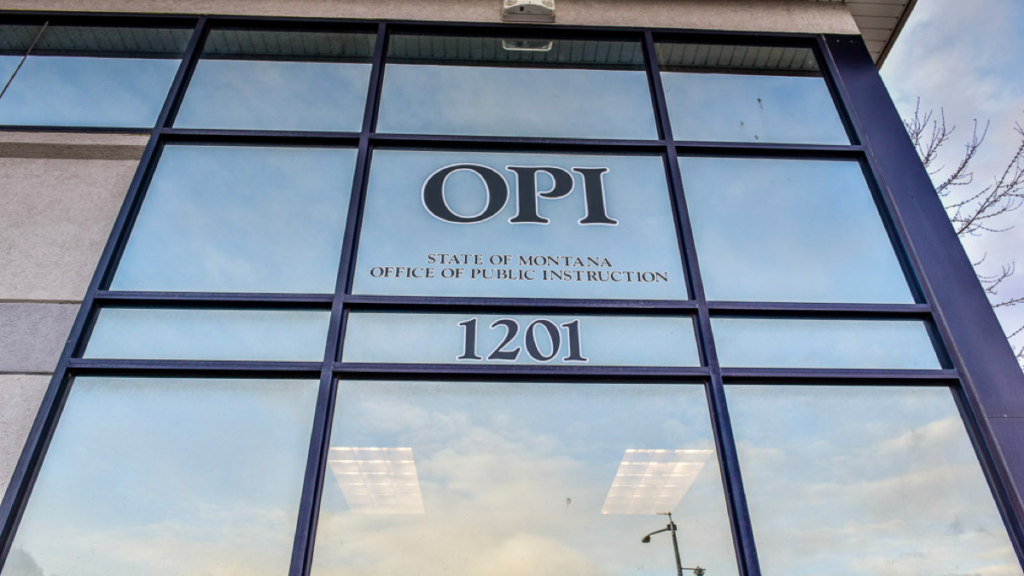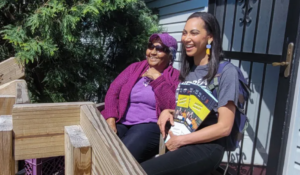OPI asks feds to approve COVID relief spending

The Montana Office of Public Instruction submitted a plan to the U.S. Department of Education Tuesday outlining how it intends to spend $382 million in federal COVID-19 relief funds.
The plan reflects more than a month of legislative debate this spring over the allocation of money from the American Rescue Plan Act. Lawmakers ultimately approved an ARPA spending plan, House Bill 632, in April, that identified learning loss and enrollment-induced budget gaps as key funding priorities. Combined with other federal relief packages, Congress has committed more than $593 million to help Montana’s education system address the long-term impacts of the pandemic on K-12 students and teachers. OPI’s 69-page plan now offers a more detailed look at how the agency will carry out the Legislature’s objectives.
“Through this large influx of Federal funds, Montana schools have an opportunity to focus on the whole child and maximize instruction,” Superintendent Elsie Arntzen said in a statement announcing the plan. “But we don’t need Washington [D.C.] dictating cumbersome terms of use to Montana schools. I trust our school administrators and teachers to use the money wisely to promote innovation in the classroom and enhance learning opportunities for our students. Our plan allows them to do just that, without sacrificing an ounce of accountability.”
One way lawmakers sought to make up for instruction time lost during the pandemic was to flag roughly $3.8 million for summer enrichment programs. According to the plan, OPI is now developing several such programs, including a student film festival for summer 2022 that will feature workshops on digital media and communications. The agency plans to release a full guide to summer enrichment opportunities this fall, and will offer resources and training to local schools and organizations looking to develop their own summer programming. OPI is taking a similarly supportive position when it comes to after-school programming, for which HB 632 allocated $3.8 million in ARPA funds.
Other roles OPI plans to take on include providing professional development and technical support for schools and teachers working to address the academic impacts of COVID-19, and using data collected from surveys this year to better identify those impacts. One such survey conducted in May showed that 58% of educators thought their students learned less in the past year than in previous years. In response to that figure, OPI vowed in its plan that “professional development will be offered to help districts accelerate learning for their students.”
The plan clearly identifies three high-need areas for students across Montana’s K-12 system: mental health support, social and emotional support, and academic support to make up for lost learning opportunities. For the most part, though, the approach sketched out by OPI for meeting those needs is to leave much of the decision-making up to local school officials who submit requests for ARPA funds, with OPI offering guidance, resources and oversight as needed.
“Superintendent Arntzen believes that our Montana schools know their children better than Washington or Helena, and should be afforded the ability to craft and tailor solutions that best fit their individual situations,” OPI spokesperson Chris Averill told Montana Free Press via email. “OPI will continue to update its guidance to schools regularly as the [Department of Education] finalizes its requirements to ensure they have as much ability as possible to pursue opportunities that improve instruction and bring innovation into the classroom.”
Dennis Parman, executive director of the Montana Rural Education Association, said the emphasis on local control in OPI’s plan is an important reflection of the differences between schools and communities in Montana. For example, Parman noted that some schools are operating with outdated HVAC systems — a potential candidate for federal relief funding — while others have systems that are nearly state-of-the-art.
“The gamut of what the needs are locally and the facilities and instruction and staffing and every component of how schools are operated, it’s huge,” Parman said. “So having the flexibility to make decisions locally to fit local needs is really important.”
Similarly, Parman sees a significant need for the nature and extent of learning loss to be defined at a local level. According to Averill, OPI did not set any parameters for gauging learning loss in its plan. Parman said understanding how lost educational opportunities affected students will depend on their performance in specific areas like language and math, and just as with infrastructure, those needs will vary from school to school. The Board of Public Education was also supportive of OPI’s emphasis on local control, issuing MTFP this statement via Executive Director McCall Flynn:
“The Board of Public Education supports the Montana State Plan for the American Rescue Plan Elementary and Secondary School Emergency Relief Fund’s recognition of local control. We appreciate the flexibility for schools all across Montana as they work to meet the academic, social, emotional, and mental health needs of students resulting from COVID-19.”
The submittal of OPI’s plan sets the stage for one more critical step: the release of one-third of the state’s ARPA funding for education, which the Department of Education made contingent on its approval of a state plan. Averill said it’s currently unclear how long it will take the department to approve Montana’s plan and release those funds.
This article was originally posted on OPI asks feds to approve COVID relief spending





